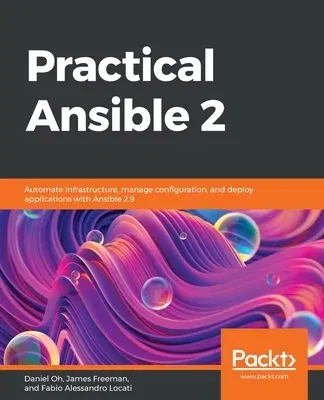Leverage the power of Ansible to gain complete control over your
systems and automate application deployment
Key Features
- Use Ansible 2.9 to automate and control your infrastructure
- Delve into advanced functionality such as plugins and custom modules
in Ansible
- Automate and orchestrate major cloud platforms such as OpenStack, AWS,
and Azure using Ansible
Book Description
Ansible enables you to automate software provisioning, configuration
management, and application roll-outs, and can be used as a deployment
and orchestration tool. While Ansible provides simple yet powerful
features to automate multi-layer environments using agentless
communication, it can also solve other critical IT challenges, such as
ensuring continuous integration and continuous deployment (CI/CD) with
zero downtime.
In this book, you'll work with Ansible 2.9 and learn to solve complex
issues quickly with the help of task-oriented scenarios. You'll start by
installing and configuring Ansible on Linux and macOS to automate
monotonous and repetitive IT tasks and get to grips with concepts such
as playbooks, inventories, and network modules. As you progress, you'll
gain insight into the YAML syntax and learn how to port between Ansible
versions. In addition to this, you'll also understand how Ansible
enables you to orchestrate multi-layer environments such as networks,
containers, and the cloud.
By the end of this Ansible book, you'll be well - versed in writing
playbooks and other related Ansible code to overcome just about all of
your IT challenges, from infrastructure-as-code provisioning to
application deployments, and even handling the mundane day-to-day
maintenance tasks that take up so much valuable time.
What you will learn
- Become familiar with the fundamentals of the Ansible framework
- Set up role-based variables and dependencies
- Avoid common mistakes and pitfalls when writing automation code in
Ansible
- Extend Ansible by developing your own modules and plugins
- Contribute to the Ansible project by submitting your own code
- Follow best practices for working with cloud environment inventories
- Troubleshoot issues triggered during Ansible playbook runs
Who this book is for
If you are a DevOps engineer, administrator, or any IT professional
looking to automate IT tasks using Ansible, this book is for you. Prior
knowledge of Ansible is not necessary.


